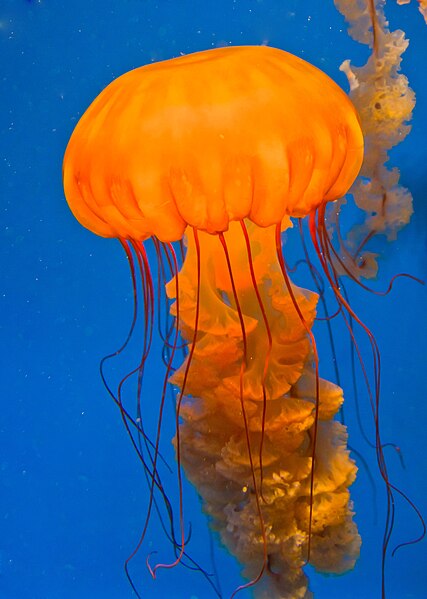
At this point, is “species” just homage to Darwin’s Origin of Species? From ScienceDaily:
The Atlantic sea nettle is one of the most common and well known jellyfish along the U.S. East Coast, especially in the Chesapeake Bay and Rehoboth Bay where they commonly sting swimmers in large numbers. Since it was described nearly 175 years ago, the jellyfish has been assumed to be a single species.
The discovery that is was actually two distinct species, Gaffney said, was made possible by DNA sequencing techniques.
“Before DNA came along, people in museums looked at organisms and counted spines and bristles, measured things, and sorted organisms by their physical characteristics in order to identify species,” Gaffney said. “In the case of this jellyfish, which has been commonly known for centuries, Keith found through DNA sequencing that there were actually two groups.” Paper. (public access) – Keith M. Bayha, Allen G. Collins, Patrick M. Gaffney. Multigene phylogeny of the scyphozoan jellyfish family Pelagiidae reveals that the common U.S. Atlantic sea nettle comprises two distinct species (Chrysaora quinquecirrha and C. chesapeakei). PeerJ, 2017; 5: e3863 DOI: 10.7717/peerj.3863 More.
Move over, “new species” of orangutan!
So what, exactly, is the value of the concept of “speciation” anyway, apart from appeasing US school boards and Euro science boffins? None of this would matter much if all that was at stake was tenure somewhere for an academic non-entity who is more likely to be a victim of than a promoter of the current campus war on the intellectual life.
But what about preserving biodiversity and, explicitly for example, endangered primate groups like orangutans?
Don’t we need to start by revamping the way we decide what we should save, as well as how? Now that would be a useful project for the Royal Society.
See also: New species of orangutan? Or new need to clarify what “species” means?
Nothing says “Darwin snob” like indifference to the mess that the entire concept of speciation is in
and
Upcoming Royal Society meeting: Sexual selection in extinct animals Huh? One thing about studying sexual selection in extinct animals, we may never be able to find out if we are wrong. 😉